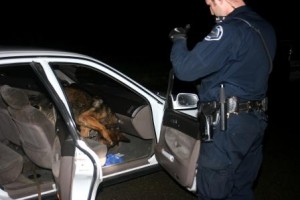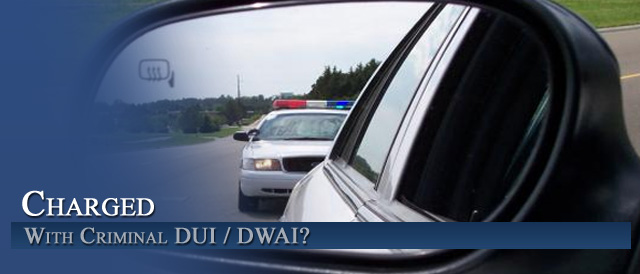
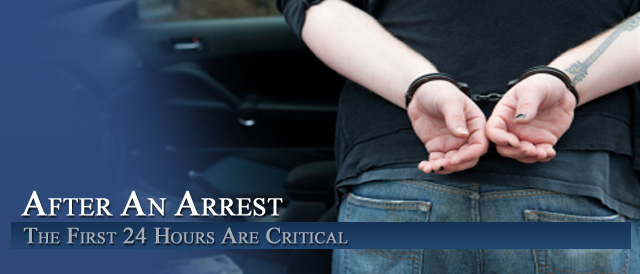

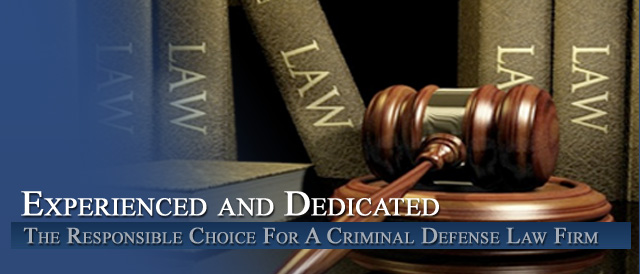
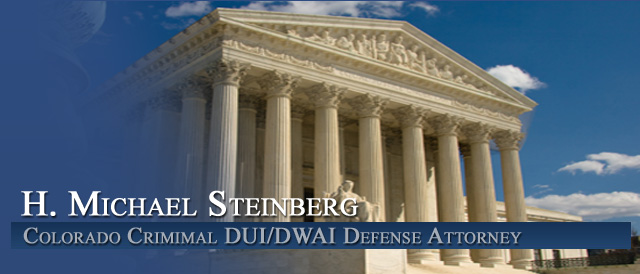
Colorado Criminal Law Guide – Searches Of Your Car – Your Right To Refuse
By H. Michael Steinberg Colorado DUI and Traffic Crimes Criminal Defense Lawyer
Colorado Criminal Law Guide – Searches Of Your Car – Your Right To Refuse – One of the most confusing aspects of Colorado police stops of vehicles – is the attempt by the police to search your car after a lawful traffic crime only stop. This article examines your right to refuse such an intrusion and the possible criminal charges that may follow if you make the wrong decision..
Every Case Is Different – The Issue Of Whether There You Gave “Voluntary Consent” To Search Your Car Is Fact Driven
The law in Colorado as to what constitutes a consensual, and therefore, lawful search of a vehicle is extremely fact driven. A Colorado criminal defense lawyer’s job is to challenge the State’s assertion that you (if your car has been illegally searched) lawfully consented to the search.
The “voluntariness” of your consent is tested by the Court and requires the Court, in a Motion to Suppress Evidence hearing, to correlate your actions with the actions of the police at the time of the search.
The Basic Law Underlying “Voluntariness” In The Search Of An Automobile In Colorado
The first two questions in this area of Colorado criminal law are assumed and are not addressed in this article. The two “givens” in the scenario I address here are:
(1) It is assumed that your car is stopped legally
and
(2) It is assumed that the police have no other legal right to search your car without your voluntary consent.
What are your rights in this situation in Colorado?
The Fourth Amendment – Search And Seizure Law
Any analysis of the law of search and seizure begins with the Fourth Amendment and the law surrounding “voluntariness” with respect to consensual searches. The Fourth Amendment of the United States Constitution as well as Section 7 of the Colorado Constitution, protect the right of the people of Colorado “to be free from unreasonable searches and seizures.”
The Fourth Amendment prohibits warrantless searches of a person’s property.
BUT a warrantless search and subsequent seizure of evidence is “constitutionally justified” IF the search is conducted pursuant to voluntary consent. Consent is defined as “voluntary” when it is “the product of an essentially free and unconstrained choice by its maker.”
However, a consensual search is made involuntary when the police “overbear” the consenting party’s will and critically impair the party’s “capacity for self-determination.” More exactly, under these circumstances, an otherwise consensual search is made involuntary if the consent is:
“‘the result of duress or coercion, express or implied, or any other form of undue influence exercised [by the police] against the defendant.'”
“Undue influence includes such things as promises, threats, and intrusive or threatening police conduct.
To summarize, the focus here is whether the police’s intrusive conduct “critically impaired the defendant’s judgment.”
The Test Applied To The Facts Of Every Alleged Consensual Search Is Called The “Totality of the Circumstances Test”
A Trial Judge weighing the evidence in a court challenge to an alleged consensual search will look at ALL of the evidence surrounding a Defendant’s challenge to the voluntariness of that search. Whether, in fact, the police “overbore a defendant’s will” and therefore “rendered his consent involuntary” is based on the totality of the all the circumstances surrounding the scene.
Under Colorado CONSTITUTIONAL law, it is not necessary that you know or you have been advised that you have a right to refuse to consent to a search of your car. Unlike the Miranda warnings which inform you that you have a right to remain silent and you have a right to a lawyer, there is no constitutional requirement that the police advise you you can refuse to consent to a search of your car. Bottom line here – under constitutional law – and this may be a shocker – police officers do not have an affirmative duty to warn parties of their right to refuse to consent to a search of their car.
BUT – a relatively new statutory law – CRS 16-3-310 – below – DOES require informed consent and your lack of the knowledge of a right to refuse to consent to a search of your car is one of several “factors” Trial Judges will, tracking the language of CRS 16-3-310, weigh in determining whether your consent was voluntary (see below).
Stated differently:
…the courts must look at the totality of the circumstances to determine voluntariness; a defendant’s knowledge of the right to refuse is only a factor in that determination.
…voluntary consent is determined based on the totality of the circumstances, and there is a “difference between a voluntary act and an act that is done knowingly and intelligently.
The Factors Of Voluntariness
The Colorado Courts of Appeal have laid out several “important factors” that are weighed using the “totality of the circumstances” test. These factors are:
- the age, the education, and intelligence of the Defendant;
- the duration, location, and circumstances of the search;
- the consenting person’s state of mind; and
- anything else that could have affected the defendant’s free and unconstrained choice in consenting to the search.
The Trial Judge’s focus is on the nature of the alleged police “coercion” and this Defendant’s personal and subjective characteristics such as any language or mental health barriers that may make this Defendant more susceptible to police coercion.
However, whether police conduct is coercive turns on an “objective test” of that officer’s conduct (compared to a reasonable police officer under the same or similar circumstances. “The question is asked by the Court, under the “totality of the circumstances” was this officer’s conduct reasonable? Or was there overbearing, coercive, or deceptive police conduct on a person with the knowledge and particular characteristics of this Defendant?
Colorado Provides A Statute That Sets Up The Analysis – CRS 16-3-310
A relatively new law (2010) enacted by the Colorado state legislature helps the courts and the police understand and apply these factors. This statute is now used in the courts of the state of Colorado to test the voluntariness of an automobile search..
CRS 16-3-310 is reprinted here as follows:
§ 16-3-310. Oral Advisement and Consent Prior to Search of a Vehicle or a Person During a Police Contact
(1) (a) Prior to conducting a consensual search of a person who is not under arrest, the person’s effects, or a vehicle, a peace officer shall comply with paragraph (b) of this subsection (1).
(b) A peace officer may conduct a consensual search only after articulating the following factors to, and subsequently receiving consent from, the person subject to the search or the person with the apparent or actual authority to provide permission to search the vehicle or effects.
The factors are:
(I) The person is being asked to voluntarily consent to a search; and
(II) The person has the right to refuse the request to search.
(c) After providing the advisement required in paragraph (b) of this subsection (1), a peace officer may conduct the requested search only if the person subject to the search voluntarily provides verbal or written consent. Other evidence of knowing and voluntary consent may be acceptable, if the person is unable to provide written or verbal consent.
(2) A peace officer providing the advisement required pursuant to subsection (1) of this section need not provide a specific recitation of the advisement; substantial compliance with the substance of the factors is sufficient to comply with the requirement.
(3) If a defendant moves to suppress any evidence obtained in the course of the search, the court shall consider the failure to comply with the requirements of this section as a factor in determining the voluntariness of the consent.
(4) This section shall not apply to a search conducted pursuant to section 16-3-103, a validsearch incident to or subsequent to a lawful arrest, or a search for which there is a legal basis other than voluntary consent. This shall include, but not be limited to, a search in a correctional facility or on correctional facility property, a detention facility, county detention facility, custody facility, juvenile correctional facility or any mental health institute or mental health facility operated by or under a contract with the department of human services, a community corrections facility, or a jail or a search of a person subject to probation or
Analysis of CRS 16-3-310.
Section 16-3-310 now directs a police officer to provide an oral advisement prior to conducting a search of a person’s vehicle. Whether a search of a person’s car is voluntary and consensual is now governed by this law.
Essentially paragraph (b) of subsection 16-3-310 (1) states two factors that the officer should articulate prior to the consensual search of a vehicle:
(1) the person subject to the search is asked to give voluntary consent,
and
(2) the person has the right to refuse the request.
But note this, subsection (3) clarifies that “[i]f a defendant moves to suppress any evidence obtained in the course of the search, the court shall consider the failure to comply with the requirements of this section as a factor in determining the voluntariness of the consent.” § 16-3-310(3).
So the analysis is made more clear, if the police violate this new law, that violation, (such as the failure to advise you of your right to refuse the search), is only one factor, one part, of the totality of the circumstances made up of many other “enumerated factors” that took place at the scene that a judge will “weigh” before deciding whether the search of your automobile was voluntary and therefore consensual.
Colorado Criminal Law Guide – Searches Of Your Car – Your Right To Refuse
If you found any information I have provided on this web page article helpful please click my Plus+1 or the Share button below so that others may also find it.
Never stop fighting – never stop believing in yourself and your right to due process of law.
ABOUT THE AUTHOR: H. Michael Steinberg – Email The Author at [email protected] – A Denver Colorado Criminal Defense Lawyer – or call his office at 303-627-7777 during business hours – or call his cell if you cannot wait and need his immediate assistance – 720-220-2277. Attorney H. Michael Steinberg is passionate about criminal defense. His extensive knowledge and experience of Colorado Criminal Law gives him the edge you need to properly handle your case.
You must make a responsible choice for a Colorado Criminal Defense Lawyer – we encourage you to look at our firm. Over the last 40 plus years – H. Michael has mastered nearly every area of criminal law, procedure, trial and courtroom practice and he is passionate about getting you the best result in your case. He has written, and continues to write, extensively on Colorado criminal law and he hopes this article helps you in some small way – Colorado Criminal Law Guide – Searches Of Your Car – Your Right To Refuse.
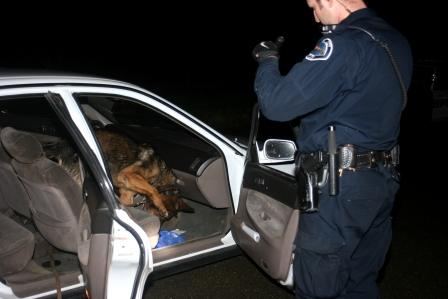
Other Articles of Interest:
- Colorado Criminal Law – Pretext Searches – The Emergency / Community Caretaking Exception To The Fourth Amendment
- A Guide To The DMV Side Of Colorado DUI Cases Part I Of IV
- Colorado Criminal Law – Know Your Rights – Remain Silent – Remain Silent – Remain Silent
- Colorado Criminal Law – When Police Violate Your Rights At A Traffic Stop
- Sentencing In A Colorado DUI – DWAI – DUID Case – “Re-packaging” The Client Ideas and Arguments




